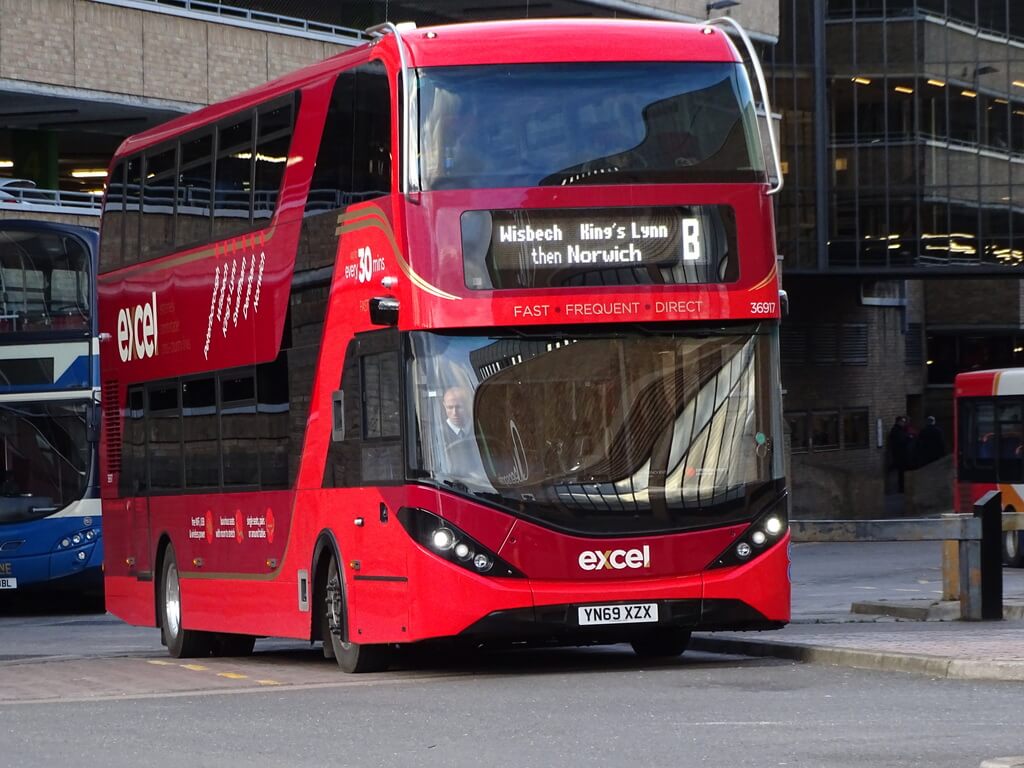Announcing its half-year results, FirstGroup has reported an adjusted operating profit ahead of expectations, driven by proactive revenue recovery and strong cost control. The Group said that it has seen a substantial reduction in passenger volumes reflecting travel restrictions and other pandemic effects. Revenue of £3,101.6m fell by £838.2m (23.8%), with reduced passenger activity offset by government procurement of services to enable socially distanced travel, and strong revenue recoveries from North American contract customers.
The Group reports an adjusted operating profit of £10.4m. Despite significant fall in revenue, profit reduction held to £99.1m against the previous period through variable cost savings of around £34m in fixed cost reductions and other management action, including appropriate use of job retention measures.
The Group reports a robust adjusted cash flow in the period, which it says ws stronger than expected, and a current liquidity of £805m in free cash and committed undrawn facilities, consistent with average levels since April.
In North America, First Student reports 59% of buses currently operating following recent increases in coronavirus cases and around 75% of home-to-school revenue pre-pandemic including recoveries from customers not yet operating full service, along with an 87% retention rate in bid season with major awards in Indianapolis and Charleston, and new contracts including Pennsylvania, boosted by acquisitions in Canada in the period and another signed this month.
The First Transit division is delivering around 86% of expected revenue pre-pandemic with a 91% contract retention rate including its $225m Houston fixed route contract, and new business wins including $88m Atlanta paratransit contract.
Greyhound is operating around 45% of pre-pandemic mileage through management of service levels to match demand and underpinned by rural intercity bus service grants, and currently delivering approximately 41% of pre-pandemic revenues in the US.
The Group remains in discussions with respect to the sale of Greyhound, and continues to rationalise its property portfolio for value, reducing our footprint by moving operations to facilities it says are better tailored to its needs.
As a result of divestment of North American businesses, the Group’s focus is set to return to the UK where First Bus is reported to be operating near-full service levels to meet passenger demand within social distancing rules under a government agreement in place until such time as it is no longer needed;. The division is making plans for transitional period that would follow, including a proposal for recovery partnerships between local authorities, the DfT and operators. Passenger volumes recovered to around 60% of pre-pandemic levels in some areas prior to second UK lockdown. The Group has committed to operate a zero-emissions fleet by 2035, and to cease purchasing diesel buses after 2022.
Commenting on the results, Chief Executive Matthew Gregory said: “The health and safety of our passengers and employees is our priority and they can be confident that our trains and buses are safe. We have implemented social distancing measures, enhanced cleaning protocols and innovative technology to improve the customer experience. I am very proud of the extraordinary efforts and commitment from all our employees during these challenging times.
“Whilst the outlook remains uncertain due to the pandemic, we performed ahead of our expectations in the first half, have taken prudent action to reinforce the balance sheet and are confident in the resilience of the Group.
Looking ahead, we will continue to work with our customers and communities to deliver safe, reliable and increasingly sustainable transportation as societies begin to look beyond the crisis and passengers return.”


